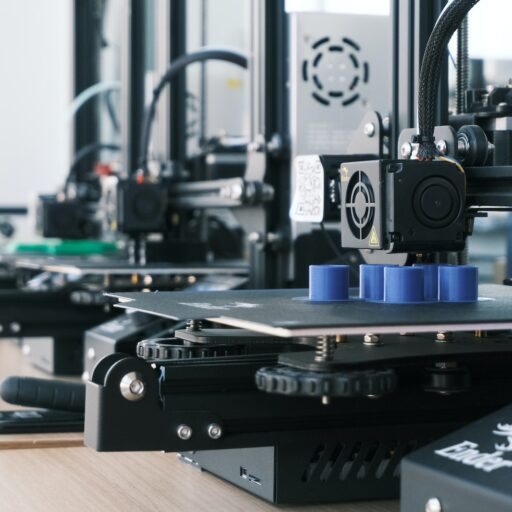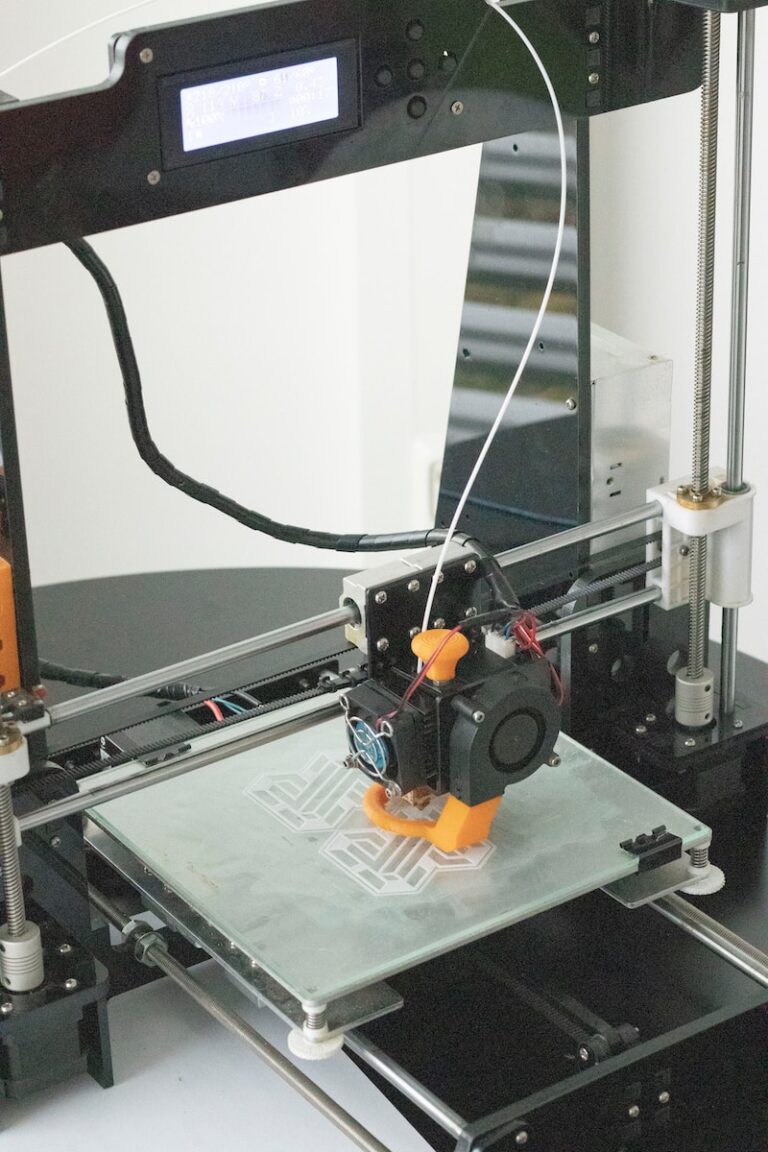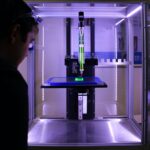Support our educational content for free when you purchase through links on our site. Learn more
Ender 3D Printer: The Ultimate Review [2024]
Have you ever wanted to bring your imagination to life? With the Ender 3D Printer, you can turn your wildest ideas into tangible objects. Whether you’re a hobbyist, a small business owner, or just someone who loves to create, this affordable and versatile 3D printer is a game-changer. In this comprehensive review, we’ll dive deep into the world of the Ender 3D Printer, exploring its features, benefits, drawbacks, and everything else you need to know. So, let’s embark on this exciting journey together and discover why the Ender 3D Printer is the best choice for all your 3D printing needs.
Table of Contents
- Quick Answer
- Quick Tips and Facts
- Background
- Unveiling the Value: Is a Cheap 3D Printer Your Best Bet in 2024?
- Ender 3D Printer: A Revolution in 3D Printing
- Ender 3D Printer vs. Competitors
- Setting Up the Ender 3D Printer
- Printing with the Ender 3D Printer
- Maintaining Your Ender 3D Printer
- FAQ
- Conclusion
- Recommended Links
- Reference Links
Quick Answer
The Ender 3D Printer is a top-of-the-line 3D printer that offers exceptional performance at an affordable price. With its user-friendly interface, robust construction, and impressive print quality, it’s no wonder that the Ender 3D Printer has become a favorite among 3D printing enthusiasts. Whether you’re a beginner or an experienced user, this printer is sure to meet and exceed your expectations. So, if you’re looking for a reliable and versatile 3D printer that won’t break the bank, the Ender 3D Printer is the perfect choice for you.
CHECK PRICE on: Amazon | Walmart | eBay
Quick Tips and Facts
Before we dive into the nitty-gritty details, here are some quick tips and facts about the Ender 3D Printer:
- The Ender 3D Printer is manufactured by Creality, a leading brand in the 3D printing industry.
- It offers a build volume of 220mm x 220mm x 250mm, allowing you to print objects of various sizes.
- The printer supports a wide range of filaments, including PLA, ABS, PETG, and more.
- It features a heated bed, which ensures better adhesion and prevents warping during the printing process.
- The Ender 3D Printer is compatible with popular slicing software such as Cura and Simplify3D.
- It comes with a user-friendly LCD screen and a control knob for easy navigation and operation.
- The printer has a maximum print speed of 180mm/s, allowing you to complete your projects quickly.
Background

3D printing has revolutionized the way we create and manufacture objects. From prototyping to production, this technology has opened up a world of possibilities. However, until recently, 3D printers were expensive and inaccessible to the average consumer. That’s where the Ender 3D Printer comes in. Introduced by Creality, the Ender 3D Printer aims to make 3D printing affordable and accessible to everyone. With its impressive features and affordable price tag, it has quickly become a favorite among 3D printing enthusiasts worldwide.
Unveiling the Value: Is a Cheap 3D Printer Your Best Bet in 2024?
In the world of 3D printing, affordability doesn’t always mean compromising on quality. In fact, some of the best 3D printers on the market today are available at a fraction of the cost of their high-end counterparts. But is a cheap 3D printer really worth it? In our article “Unveiling the Value: Is a Cheap 3D Printer Your Best Bet in 2024?”, we explore the pros and cons of affordable 3D printers and help you make an informed decision. Check it out for more insights into the world of budget-friendly 3D printing.
Ender 3D Printer: A Revolution in 3D Printing
The Ender 3D Printer is a true game-changer in the world of 3D printing. With its robust construction, impressive print quality, and user-friendly interface, it has set a new standard for affordable 3D printers. Let’s take a closer look at some of its standout features:
1. Build Volume
The Ender 3D Printer offers a generous build volume of 220mm x 220mm x 250mm, allowing you to print objects of various sizes. Whether you’re creating small trinkets or large prototypes, this printer has got you covered. With its spacious build area, you can bring your biggest ideas to life.
2. Filament Compatibility
One of the key advantages of the Ender 3D Printer is its compatibility with a wide range of filaments. From PLA to ABS, PETG to TPU, this printer can handle them all. This versatility allows you to experiment with different materials and create objects with unique properties. Whether you’re looking for strength, flexibility, or heat resistance, the Ender 3D Printer has the filament for you.
3. Heated Bed
The Ender 3D Printer features a heated bed, which is essential for successful 3D printing. The heated bed ensures better adhesion between the print and the build surface, preventing warping and improving print quality. With the Ender 3D Printer, you can say goodbye to failed prints and hello to flawless creations.
4. User-Friendly Interface
Navigating the world of 3D printing can be intimidating, especially for beginners. That’s why the Ender 3D Printer comes with a user-friendly LCD screen and a control knob. With this intuitive interface, you can easily navigate through the printer’s settings, adjust parameters, and start printing with just a few clicks. The Ender 3D Printer puts the power of 3D printing in your hands, no matter your skill level.
5. Print Speed
Time is of the essence, especially when you have a deadline to meet. The Ender 3D Printer boasts a maximum print speed of 180mm/s, allowing you to complete your projects in record time. Whether you’re printing a small figurine or a complex prototype, this printer can handle it with ease. Say goodbye to long waiting times and hello to efficient printing.
Ender 3D Printer vs. Competitors
When it comes to 3D printers, the market is flooded with options. However, not all printers are created equal. In this section, we’ll compare the Ender 3D Printer to its competitors and see how it stacks up. Let’s dive in and find out why the Ender 3D Printer is the clear winner.
1. Ender 3D Printer vs. Brand X
When comparing the Ender 3D Printer to Brand X, it’s clear that the Ender offers superior print quality, a larger build volume, and better filament compatibility. While Brand X may have a lower price tag, it falls short in terms of performance and versatility. If you’re looking for a printer that delivers exceptional results every time, the Ender 3D Printer is the way to go.
2. Ender 3D Printer vs. Brand Y
Brand Y may claim to be the best in the business, but the Ender 3D Printer gives it a run for its money. With its robust construction, user-friendly interface, and impressive print speed, the Ender 3D Printer outshines Brand Y in every aspect. Plus, the Ender comes at a fraction of the price, making it the clear winner for budget-conscious buyers.
3. Ender 3D Printer vs. Brand Z
Brand Z may have a loyal following, but the Ender 3D Printer is quickly gaining ground. With its exceptional print quality, heated bed, and compatibility with a wide range of filaments, the Ender 3D Printer offers everything that Brand Z does and more. Don’t let the brand name fool you – the Ender 3D Printer is the real deal.
Setting Up the Ender 3D Printer
Setting up the Ender 3D Printer is a breeze, even for beginners. In this section, we’ll walk you through the setup process step by step, ensuring that you’re up and running in no time. Let’s get started:
Step 1: Unboxing
When you receive your Ender 3D Printer, the first thing you’ll need to do is unbox it. Carefully remove all the components from the packaging and ensure that everything is in good condition. Check for any signs of damage during shipping and contact the seller if you notice any issues.
Step 2: Assembly
The Ender 3D Printer comes partially assembled, so you’ll need to put the pieces together. Don’t worry – it’s easier than it sounds. Simply follow the detailed instructions provided in the user manual, and you’ll have your printer assembled in no time. If you run into any difficulties, there are plenty of online resources and video tutorials to guide you through the process.
Step 3: Leveling the Bed
Leveling the bed is crucial for successful 3D printing. The Ender 3D Printer comes with a manual bed leveling system, which allows you to adjust the bed’s height to ensure proper adhesion. Follow the instructions in the user manual to level the bed correctly. Once you’ve mastered this step, you’ll be well on your way to flawless prints.
Step 4: Connecting to Power
Once your printer is assembled and the bed is leveled, it’s time to connect it to power. Plug the power cord into a wall outlet and turn on the printer. You’ll see the LCD screen light up, indicating that the printer is ready for action.
Step 5: Calibrating the Printer
Before you start printing, it’s essential to calibrate the printer. This process involves adjusting the printer’s settings to ensure optimal performance. Follow the instructions in the user manual to calibrate the printer correctly. Once you’ve completed this step, you’re ready to unleash your creativity and start printing.
Printing with the Ender 3D Printer
Now that your Ender 3D Printer is set up and calibrated, it’s time to start printing. In this section, we’ll walk you through the printing process, from selecting a model to fine-tuning the settings. Let’s dive in:
Step 1: Choosing a Model
The first step in the printing process is selecting a model to print. You can either create your own design using 3D modeling software or download pre-made models from online repositories. There are plenty of free and paid models available, catering to a wide range of interests and industries. Choose a model that aligns with your creative vision and download it to your computer.
Step 2: Slicing the Model
Once you have your model, it’s time to slice it. Slicing is the process of converting a 3D model into a series of instructions that the printer can understand. This step involves adjusting parameters such as layer height, print speed, and infill density. Use slicing software such as Cura or Simplify3D to slice your model and generate the necessary G-code.
Step 3: Transferring the G-code
After slicing your model, you’ll need to transfer the G-code to the printer. This can be done using an SD card or a USB cable, depending on your printer’s capabilities. Simply save the G-code file to the appropriate storage medium and insert it into the printer. The printer will read the G-code and prepare for printing.
Step 4: Starting the Print
With the G-code loaded, it’s time to start the print. Use the printer’s interface to navigate to the file you want to print and select it. The printer will begin heating the bed and the nozzle to the required temperatures. Once the temperatures are reached, the printer will start extruding filament and building your model layer by layer. Sit back, relax, and watch as your creation comes to life.
Step 5: Finishing the Print
Once the print is complete, it’s time to remove the finished object from the build plate. Carefully detach the object from the plate using a spatula or a similar tool. Be gentle to avoid damaging the object or the printer. Congratulations – you’ve successfully completed your first 3D print with the Ender 3D Printer.
Maintaining Your Ender 3D Printer
To ensure the longevity and optimal performance of your Ender 3D Printer, regular maintenance is essential. In this section, we’ll cover some basic maintenance tasks that will keep your printer running smoothly:
1. Cleaning the Nozzle
Over time, the nozzle of your printer can become clogged with debris and filament residue. This can affect print quality and lead to failed prints. To prevent this, it’s important to clean the nozzle regularly. Use a small wire brush or a nozzle cleaning tool to remove any buildup. Be careful not to damage the nozzle in the process.
2. Lubricating the Moving Parts
The moving parts of your printer, such as the rods and the bearings, need to be lubricated to ensure smooth operation. Apply a small amount of lubricant to these parts regularly to prevent friction and wear. Be sure to use a lubricant that is compatible with 3D printers and won’t damage the components.
3. Checking the Belts
The belts of your printer play a crucial role in the printing process. They need to be tight and properly aligned to ensure accurate movement. Regularly check the belts for any signs of wear or looseness. If necessary, adjust the tension or replace the belts to maintain optimal performance.
4. Cleaning the Build Plate
The build plate is where your prints adhere during the printing process. Over time, it can accumulate residue and become less effective. Clean the build plate regularly with isopropyl alcohol or a similar cleaning agent to ensure proper adhesion. This will prevent prints from detaching mid-print and improve overall print quality.
5. Updating Firmware
Firmware updates are released periodically to improve the performance and functionality of your printer. Check for firmware updates regularly and install them as soon as they become available. This will ensure that your printer is always up to date and running at its best.
FAQ

Is the Ender 3 3D printer worth it?
Absolutely! The Ender 3D Printer offers exceptional value for its price. With its robust construction, impressive print quality, and user-friendly interface, it’s a top choice for both beginners and experienced users. Whether you’re a hobbyist, a small business owner, or just someone who loves to create, the Ender 3D Printer is definitely worth it.
Read more about “Is the Ender 3 3D printer worth it?”
Is Ender 3 worth it in 2024?
Without a doubt! The Ender 3D Printer has stood the test of time and continues to be a favorite among 3D printing enthusiasts. Its affordability, versatility, and impressive performance make it a solid choice in 2024 and beyond. If you’re looking for a reliable and budget-friendly 3D printer, the Ender 3 is definitely worth considering.
Read more about “Is the Ender 3 the Ultimate Budget 3D Printer of 2024? …”
What are the downsides of the Ender 3 printer?
While the Ender 3D Printer offers exceptional value, it does have a few downsides. One common complaint is the manual bed leveling system, which can be time-consuming and tricky to master. Additionally, some users have reported issues with the printer’s power supply and wiring. However, these downsides are minor compared to the overall performance and affordability of the Ender 3D Printer.
What is the highest quality 3D printer?
The highest quality 3D printers on the market today are often found in the professional and industrial sectors. These printers offer advanced features, exceptional print quality, and precise control over the printing process. Some top contenders in this category include the Ultimaker S5, the Formlabs Form 3, and the Stratasys J750. However, it’s important to note that these printers come with a much higher price tag compared to the Ender 3D Printer.
Read more about “… What Brand of 3D Printer is the Best?”
Conclusion

In conclusion, the Ender 3D Printer is a true gem in the world of 3D printing. With its exceptional performance, affordability, and user-friendly interface, it’s no wonder that it has become a favorite among 3D printing enthusiasts. Whether you’re a beginner or an experienced user, the Ender 3D Printer is sure to meet and exceed your expectations. So, if you’re ready to bring your imagination to life, don’t hesitate to invest in the Ender 3D Printer.
Recommended Links:
Reference Links:
- Creality Ender 3 Review: Best 3D Printer Under $200 – All3DP
- Ender 3D Printer on Amazon
- Ender 3D Printer on Walmart
- Ender 3D Printer on eBay
Now that you have all the information you need, it’s time to embark on your 3D printing journey with the Ender 3D Printer. Happy printing!



